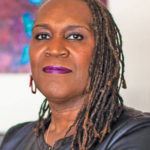
We’re More Than Just Murder Victims
Black trans people are excelling in all facets of society.
Ispend a lot of time on my TransGriot blog chronicling the deaths of transgender people. As of this writing, we have lost 16 to anti-trans violence in 2018, and 10 of those were African-American. Sadly, there will be more.
Far too often, trans people who have been murdered are then misgendered and deadnamed by law enforcement and the media. That’s one of the major reasons I spend so much time trying to tell the stories of our fallen trans siblings and give them the respect they are due.

While trans murders and the subsequent disrespect are newsworthy issues to which we have long struggled to draw attention, I have a problem with the “black trans person equals tragic murder victim” narrative. This framing of our lives takes attention away from discussing our many accomplishments.
Remember, it was a black trans woman named Marsha P. Johnson who threw the first shot glass at police and kicked off the 1969 Stonewall riots. Those riots sparked the formation of the modern LGBTQ rights movement.
But before Marsha threw that shot glass, a group of black gender-variant kids stood up for their humanity and human rights during a 1965 sit-in and protest that lasted for a week at Dewey’s Lunch Counter, a diner on the edge of the Philadelphia gayborhood.

Black trans folks are more than just tragic murder victims. We are parents, nieces, nephews, spouses, and significant others in relationships. We are entrepreneurs, actors, lawyers, teachers, clergy, college professors, models, politicians, and advocates.
And like this GLAAD Media Award-winning OutSmart columnist, we are also writers.
Dallas has become the center of the black trans universe, in large part due to the Black Trans Advocacy Coalition (BTAC) founded by Carter Brown. The BTAC’s annual conference is held in Dallas during the last week of April.
One of the people I met at BTAC, Dr. Kortney Ziegler, directed and produced the award-winning 2008 documentary Still Black: A Portrait of Black Transmen, which was the first-ever film focused on the lives of trans men. Ziegler created Trans H4CK, a hackathon event that seeks to use information technology to solve real-world problems in the transgender community.

Ziegler and his business partner, Tiffany Mikell, have also created an app called Appolition, which turns spare change from everyday purchases into bail money for those who would otherwise stay incarcerated due to their financial circumstances.
Breanna Sinclaire is a classically trained musician who recently sang the national anthem at a San Francisco Giants game. She had ➝ previously done so for the Oakland Athletics in
June 2015.
Tona Brown, a classically trained singer and violinist based in Washington DC, performed for President Obama, and in June 2014 became the first African-American trans person to perform at Carnegie Hall.
#BlackTransExcellence is heavily involved in the FX series Pose, which was recently renewed for a second season. Janet Mock is a writer and producer on the show, and Angelica Ross, when she’s not playing Candy Ferocity, is the founding executive director of TransTech Social Services.
We have examples of #BlackTransExcellence who (as Miss Major Griffin-Gracy would say) are “still f–cking here” in elders like Griffin-Gracy, Jonathan Thunderword, Tracie Jada O’Brien, Gloria Allen, and Sharyn Grayson.
Other high-profile examples of #BlackTrans
Excellence are personified in Andrea Jenkins and Phillipe Cunningham, who sit on the Minneapolis City Council after their historic elections in November 2017. Jenkins, who serves as the council’s vice president, was the first out black trans person elected to public office since Althea Garrison joined the Massachusetts state legislature in 1990.
But Cunningham’s win was even more impressive. To become the first out, black, trans-masculine person elected to public office, he had to beat former Minneapolis City Council president Barb Johnson, a 20-year incumbent, for the Ward 4 seat he now ably represents.
And this isn’t just a modern-day occurrence. Wilmer Broadnax was an accomplished gospel-quartet singer in a career that spanned four decades from the 1940s to the 1970s.
And, when it comes to marriage equality, one of the people put on trial for marrying the person she loved was Lucy Hicks Anderson. During her 1945 trial by authorities in Ventura, California, she defiantly said, “I defy any doctor in the world to prove that I am not a woman. I have lived, dressed, and acted just what I am—a woman.”
I also have to talk about the people who have gone on to join the ancestors—pioneering leaders and advocates for our community such as Alexander John Goodrum, Marcelle Cook Daniels, and Cheryl Courtney-Evans.
Yes, we black trans people are more than just tragic murder victims. We are—despite the efforts of the Trump administration, the Trans Exclusive Radical Feminists, the Republican Party, and its white nationalist allies—undeniably part of the diverse mosaic of human life.
This article appears in the August 2018 edition of OutSmart magazine.










